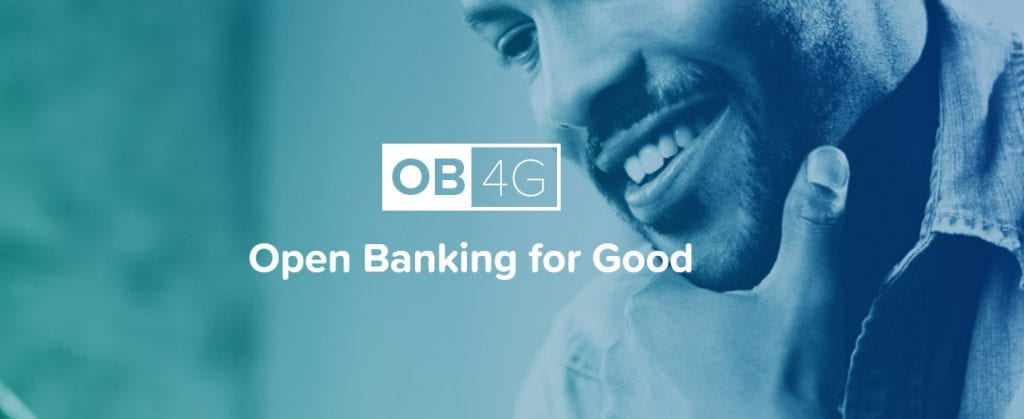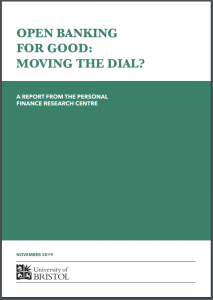By Sharon Collard and Jamie Evans
Nationwide Building Society’s Open Banking for Good (OB4G) – an initiative to use Open Banking technology to help ‘financially squeezed‘ people – ran from 2018 to early 2020. With around 4 million UK households currently struggling to manage financially, the COVID-19 pandemic has highlighted the value of these propositions as well as presenting opportunities and challenges for the fintech Challengers in terms of their ability to grow and scale.
Open Banking for Good (OB4G) was launched by Nationwide Building Society in 2018 and ran throughout 2019 into early 2020. It brought together user experts (charity partners), solution experts (fintech Challengers) and process experts (Nationwide’s OB4G team) to solve real-life financial challenges for people who are ‘financially squeezed’.
Our newly-published evaluation of the impact of the OB4G programme shows that it largely met the expectations of the five fintech Challengers that completed it, by creating time and space for innovation though collaborative learning with user experts. As a result, all five Challengers successfully developed and tested propositions that tackle real problems which were grounded in the experience of people who are ‘financially squeezed’.
The COVID-19 pandemic took hold in March 2020, just as the OB4G programme was wrapping up. The economic and social impact of the pandemic has fallen especially heavily on OB4G’s target audience with an estimated 4 million people currently struggling to manage. While the pandemic brought home the potential value of the propositions that were developed in the OB4G programme, it also impacted the OB4G Challengers in a range of different ways:
- Income smoothing challenge: Trezeo brought forward the development of its sickness insurance for independent workers and gave existing members complementary cover from early March to the end of June 2020. The pandemic also meant it had to delay its next funding round and put on hold its partnership with an online employment platform.
- Income and expenditure challenge: Both Ducit.ai and OpenWrks saw increased demand for their Income & Expenditure propositions as the pandemic led to large-scale drops in earnings and people turned to creditors for forbearance and support. OpenWrks also created a payment relief solution that enabled lenders to offer an automated online channel for customers to apply for mortgage and consumer credit payment deferrals.
- Money management & help challenge: The first national lockdown in March 2020 – when 2.5 million people were advised to stay at home or ‘shield’ – highlighted the value of Touco’s ideas for using tech to provide a safe way for individuals to give money to a helper to spend on their behalf. The pandemic also created significant challenges for Touco’s planned user testing of the new version of its app. The major changes to people’s spending patterns also had implications for how people interacted with Tully’s Money Coaching app, and in particular the spending challenges they might set.
Nationwide asked us to evaluate the programme so that they could learn and improve the current Nationwide Incubator which is focussed on addressing the challenges of living in financial difficulty. Our evaluation of the OB4G programme is also important as it helps build a new evidence base around the potential of technology and innovation to ‘move the dial’ on big social issues. This knowledge sharing has become even more important in the wake of COVID-19, which brings opportunities to use a Grounded Innovation approach to ‘build back better’ and improve the UK’s financial wellbeing.
Read our report: Open Banking for Good: Making a difference?


